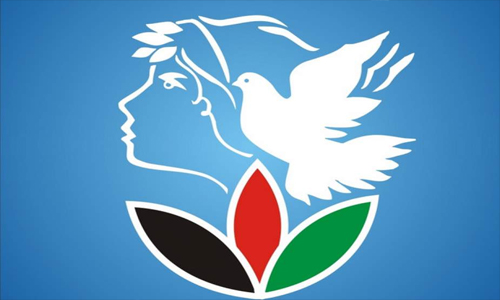Metaphysical human rights, which are discussed among religious scholars, will neither heal the bleeding wounds of human societies nor prevent from violence and bloodshed. Human rights’ discourse from religious perspective will widen the schism between religious and secular parties and religious wars and crusades will be repeated in human history – which is against the objective of the Universal Declaration of Human Rights (UDHR).
It is believed that the soul of religions nurture the UDHR but fundamental interpretations of religious texts, which deny pluralism and relativism, challenge the Declaration.
Human rights’ discourse is debated hotly in Islamic world, and UDHR is acceptable only among the moderate followers. Since the maudlin religionists were indoctrinated persistently by religious radicals, they deem the UDHR contradictory to their faith, beliefs and moral values.
It should be noted that the UDHR is based on moral values and international principles, adopted to preclude from violence, oppression and barbarity which had outraged the human conscience, and to ensure freedom, peace and justice around the globe. The modern human rights’ discourse aims to recognize human’s rights and dignity which root in moral values and religious concepts. The objective of the UDHR is stated in its preamble, “Whereas recognition of the inherent dignity and of the equal and inalienable rights of all members of the human family is the foundation of freedom, justice and peace in the world,
Whereas disregard and contempt for human rights have resulted in barbarous acts which have outraged the conscience of mankind, and the advent of a world in which human beings shall enjoy freedom of speech and belief and freedom from fear and want has been proclaimed as the highest aspiration of the common people,
Whereas it is essential, if man is not to be compelled to have recourse, as a last resort, to rebellion against tyranny and oppression, that human rights should be protected by the rule of law ….”
Many religious intellectuals believe that there exist “substantial” and “accidental” issues in Islam. The accidental matters took place on the grounds of historical, social, economic and political conditions of Hejaz – the geographical center of Prophet’s invitation. Since Prophet Muhammad (PBUH) was a charismatic leader, his charisma oozed charms and attractions in a way that the maudlin religionists, who were smoldering with burning faith and strong sense of godliness, did not involve in rational and analytical discussions.
Fourteen centuries have elapsed from the age of our Prophet and we live in modern era with different cultures and social facts. It is time to analyze the substantial and accidental issues of Islam. We have to consider the locality and social and historical phenomena of our Prophet. It is believed that studying the religious issues apart from historical facts will be fruitless. The accidental facts root in historical phenomena of a certain locality. For instance, if Islam emerged in a locality having different culture from Hejaz, the accidental issues would be colored by that culture or social facts.
Religious and political freedoms, which are stated in the Universal Declaration of Human Rights, were not discussed in Hejaz in their modern concept. These freedoms were not recognized in Hejaz on the grounds that the necessary social evolutions did not come to existence. Islam emerged in a land that idolatry reflected the social identity of Mecca people. Idolatry was handed down from one generation to the next. The strong animosity and violent backlash against the Prophet and his followers in Mecca reveal that religious freedoms and conversions jeopardized their social solidarity which was beyond their tolerance. Since religion was considered the social identity and social solidarity of those societies, religious freedom, in its modern concept, was beyond their imagination.
The same was the case with political freedoms. People were subjugated to sultans and tribal leaders. There was no central government in Hejaz and it was the tribal leaders who ruled over Mecca and Medina. Allegiance and council were the traditional methods of obedience rather than political freedom. However the soul of authoritativeness existed with puissant force and social or political authority was in the realm of tribal leaders in earnest.
Citizens can be entitled with the right to freedom of religion in a society where social identity and solidarity relate to nationality rather than religion. However, in Hejaz, it was only religion and tribe which were considered as social identity and social solidarity. An individual was deemed as a member of a tribe rather than a citizen and there was no cultural ground for freedom of religion or political liberty. Hence, if social identity and solidarity do not transit from religious factors to secular ones and an individual does not be considered as citizen, discussing about the freedom of religion and political liberty will be in vain.
So, religious and political freedoms are the basic rights of contemporary men and the product of emergence of society and state. Human rights aim to adjust the men’s social relations in modern age – the age of pluralism, relativism and skepticism. The freedom of religion in UDHR means that one is entitled with basic rights such as freedom, social rights and the right to citizenship irrespective of his/her religion or beliefs. Thus, freedom of religion, in the modern concept, is merely related to contemporary human rights which was beyond imagination in Hejaz and it does not contradict one’s religious beliefs or moral values.
Home » Opinion » Human Rights Discourse through Religious Prism
Human Rights Discourse through Religious Prism
| Hujjatullah Zia

